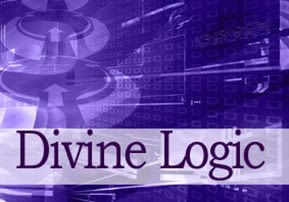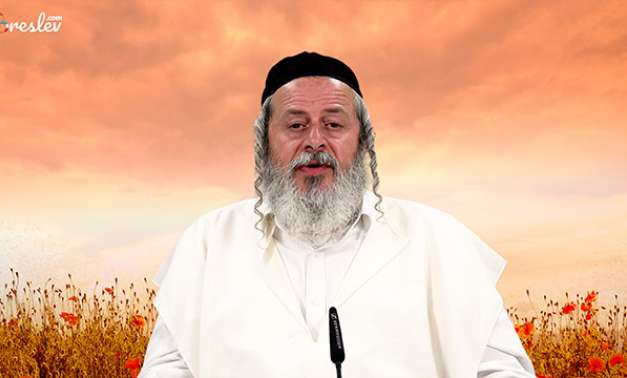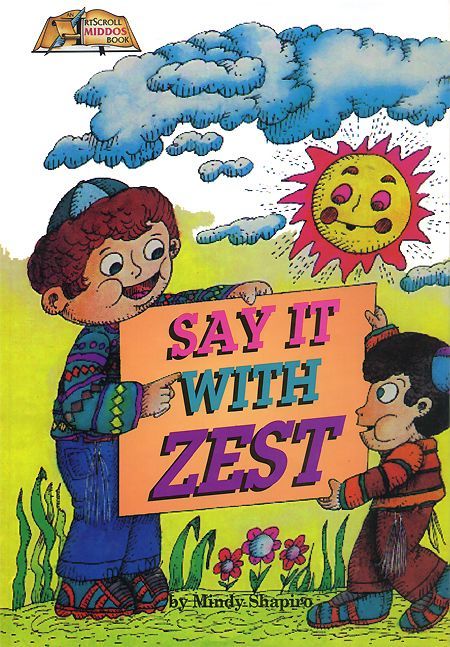
Divine Logic
What seems to the limited human brain as a paradox or contradiction is none other than Divine logic, which for the meanwhile, remains very elusive sometimes…

CONTRADICTION: a condition in which things tend to be contrary to each other;
PARADOX: a statement that seems contradictory, unbelievable, or absurd but that may actually be true in fact. (Webster’s Dictionary)
We live in world full of both, contradictions and paradoxes, and sometimes, it can be hard to tell the difference between the two. Take the age of the world, for example. Science and Carbon-Dating places the age of the universe at billions of years old. Torah, on the other hand, states explicitly that the creation of the physical universe as we know it began five days prior to the day Adam was first created, 5,757 (and a half) years ago.
A contradiction?
Perhaps, for many, it is. However, for many of those many who have since checked into the contradiction, it has since been upgraded to the level of paradox. In other words, yes, Carbon-Dating may be accurate in its measure of the age of the earth … But the Torah is also accurate in its description of creation, and its accounting of the years. If that is the case, then how can the world, which is billions of years old ALSO be 5,757 plus years old?
The Talmud supplies the missing fact (long before Carbon-Dating was discovered): creation did not evolve over a long period of time, but after the first five days it already existed as if it had. Like in the case with many paradoxes, one simple (but often previously unknown) piece of information can resolve the seemingly contradictory ideas. (In the book, GENESIS AND THE BIG BANG, Professor Gerald Schroeder offers his own scientific theory to resolve this paradox).
Another example of a paradox: right now, it is both day and night. “How can that be?” you may be thinking to yourself. Allow me to explain myself. Right now, as I write this, it is daytime in Eretz Yisroel, and nighttime in North America!
What makes a paradox a paradox is usually an incorrect assumption. For example, in the case of the age of the world, the assumption was that creation could only take its form after an extremely long period of time. Tree rings since creation have grown over generations. Continental drift has gradually been changing the shape of the world, very, VERY slowly. Rock formations have resulted from glaciers that have LONG since receded. And fossil fuels result over millennia, from creatures long since dead.
Has it not always been this way?
According to the Talmud, NO! The first five days of creation were different, which is one of the reasons why the Jewish calendar begins from the sixth day of creation, the day on which man was created. It is not possible or accurate to apply the same rules of Day Six to the first five days of creation. (The truth is, even for Adam and Chava, at least before the sin of eating from the Tree of Knowledge of Good and Evil, the natural world had been far more miraculous than it is today.)
Of all the paradoxes in the history of creation, perhaps one of the greatest is the paradox of the Red Heifer discussed in parshat Chukat. Without going into all the details of the process (which are spoken about in the parsha itself), the waters of the Red Heifer were used as part of a spiritual purification process for those who had been in close contact with the dead. The paradox: the kohen who sprinkled the waters on the impure person himself became spiritually defiled in the process! It was like two people washing from the same basin, one of whom became cleansed while the other one became dirty. How can that be? Even Shlomo HaMelech, the wisest man in all of history had to admit,
“The wisdom is distant from me (Hebrew: hi rechoka).” (Koheles 7:23)
‘The wisdom is distant from me (hi rechoka)’ … In gematria it is equal to para aduma (Red Heifer).’ (Rabbeinu Bachaye)
This type of mitzvah is called a “chok,” or, a “statute.” And, as Rashi states at the beginning of the parsha, chukim are mitzvot whose logic the non-Jews, and even our own yetzer hara’s question. We human beings like to know WHAT we’re doing, and WHY were doing it, and what effect it is supposed to have. If we can’t know that, then the mitzvot makes no sense to us, and we lose our motivation to perform them. How much more so is this the case when it seems like mitzvot contradict what we consider to be logical.
However, what the para aduma teaches us is that today’s contradiction is tomorrow’s paradox (could it be that the word “paradox” is a latinized version of para-aduma?). And who knows, the day after that, we may discover the faulty assumption that prevented us from seeing the Divine logic in the mitzvah, which, in time, is always revealed. The truth is, what is often contradiction and paradox to many is quite understandable in the world of Kabbalah, the esoteric aspect of Torah learning. The name of the game is patience in researching the idea to its ultimate conclusion. This is what Shlomo HaMelech also wrote:
If you want it like money and pursue it like buried treasures, then you will understand fear of G-d, G-d’s wisdom you will find. (Mishlei 2:4)
You have to be willing to go the distance in search of truth, knowing and believing that:
“The people who walk in darkness see the Great Light.” (Yeshiyahu 9:1)
That doesn’t mean it will all make sense today. It doesn’t mean that the INNER TRUTH of every aspect of Torah can be discerned now. However, one day it will, and when it does, the ecstasy of knowing such a high level of Divine logic will make getting there more than worthwhile. In the meantime, we Jews have taken such “loose threads” as a matter of faith, which, perhaps, is one of the very reasons why some of that Divine logic will remain elusive for some time to come.
***
Pinchas Winston is the author of over 95 books on various topics that deal with current issues from a traditional Jewish perspective. He has also written on the weekly Torah reading since 1993, called “Perceptions,” as well as on current topics and trends affecting Jewish history, past and present. One of his missions is to make the depth and beauty of the more mystical teachings of Torah understandable and accessible to those who can really benefit from them. Visit his website at thirtysix.org.












Tell us what you think!
Thank you for your comment!
It will be published after approval by the Editor.